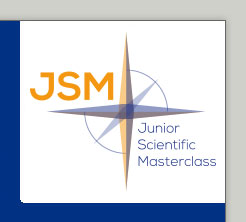Onderzoeksproject aanpassen
Projecten zijn uitsluitend aan te passen door bij het project behorende onderzoekers.
Geef via het uitrolmenu aan welke onderzoeker u bent. Nadat op u de button 'Edit project' heeft geklikt, wordt automatisch een e-mail verstuurd naar het e-mailadres van de onderzoeker die u heeft gespecificeerd.
In deze e-mail staat een link waarmee u het project kunt wijzigen.
Project properties
| Title | Acute injury markers in mild traumatic brain injury (AIM-TBI) |
|---|---|
| Keywords | immunology Neuroimaging Psychology |
| Researchers |
J. van der Naalt Dr. H.J. van der Horn |
| Nature of the research | Prospective cohort study |
| Fields of study | neurology radiology traumatology |
| Background / introduction |
|---|
|
Mild traumatic brain injury (mTBI) is one of the most common neurologic disorders. One out of 4 patients develops long-lasting cognitive and/or emotional complaints that interfere with daily functioning. Therefore, mTBI poses a significant public health burden. Over the years, many factors have been identified that are predictive of outcome after mTBI. Multifactorial models have shown that in addition to clinical injury-related factors, such as loss of consciousness and post-traumatic amnesia, recovery is strongly influenced by pre-existent psychological factors, for instance coping style and emotion regulation. Despite these scientific efforts, persistent complaints are still rather unpredictable in individual patients, for whom injury mechanisms are often comparable. To date, there are few studies that have investigated the influence of acute physiological effects of the injury, such as cellular damage (brain-specific proteins such as tau), neuroinflammation (cytokines), and acute stress (cortisol), on the development of persistent complaints and poor outcome after mTBI. As various functional MRI (fMRI) studies have demonstrated that persistent complaints after mTBI are related to alterations in neural networks, a pivotal question is whether acute physiological effects of brain injury lead to disturbances in neural networks that are important for emotion regulation. Furthermore, it is still unknown if there exists an interaction with pre-existent personality, coping style, and stress levels. These topics have never been touched upon, and therefore form a gap in mTBI research. |
| Research question / problem definition |
|---|
|
- Does mTBI result in specific acute physiological changes (brain-specific proteins, cytokines, cortisol), and are there differences or similarities with trauma-controls (e.g. patients with sprained or fractured (distal) extremities)? - Are these acute injury markers related to neural network dysfunction (as measured with fMRI) after mTBI? and is this accompanied by emotion regulation deficits? - Can persistent complaints and poor outcome after mTBI be explained by an interaction between acute injury markers and pre-existent psychological factors? Or is one of these two factors more important than the other? |
| Workplan |
|---|
| We are looking for students who are interested in conducting a master thesis. The student will participate in the patient inclusion, data acquisition, and (preliminary) data analysis. To become familiar with the research theme he or she will attend the morning reports at the Neurology department, in order to keep track of the included patients, and to learn about Neurology in general. He or she will also be able to join residents in the day or evening shifts to gain experience with emergency neurology, to learn about the acute care of patients with mild TBI, and to help with the inclusion of patients. Lastly, there are opportunities to assist in the acquisition and analysis of fMRI-data, which will be conducted in collaboration with the NeuroImaging Center (NiC). |
| References |
|---|
|
Mayer, A. R., Quinn, D. K., & Master, C. L. (2017). The spectrum of mild traumatic brain injury. Neurology, 89(6), 623–632. doi:10.1212/WNL.0000000000004214 van der Horn, H. J., Scheenen, M. E., de Koning, M. E., Liemburg, E. J., Spikman, J. M., & van der Naalt, J. (2017). The Default Mode Network as a Biomarker of Persistent Complaints After Mild Traumatic Brain Injury: A Longitudinal fMRI Study. Journal of Neurotrauma, 8, neu.2017.5185. doi:10.1089/neu.2017.5185 van der Naalt, J., Timmerman, M. E., de Koning, M. E., van der Horn, H. J., Scheenen, M. E., Jacobs, B., et al. (2017). Early predictors of outcome after mild traumatic brain injury (UPFRONT): an observational cohort study. The Lancet Neurology, 16(7), 532–540. doi:10.1016/S1474-4422(17)30117-5 |


